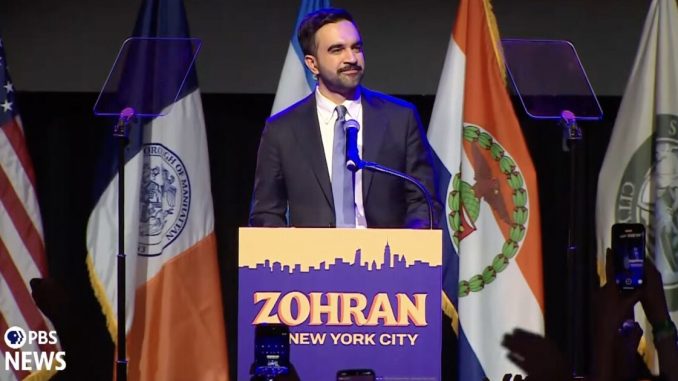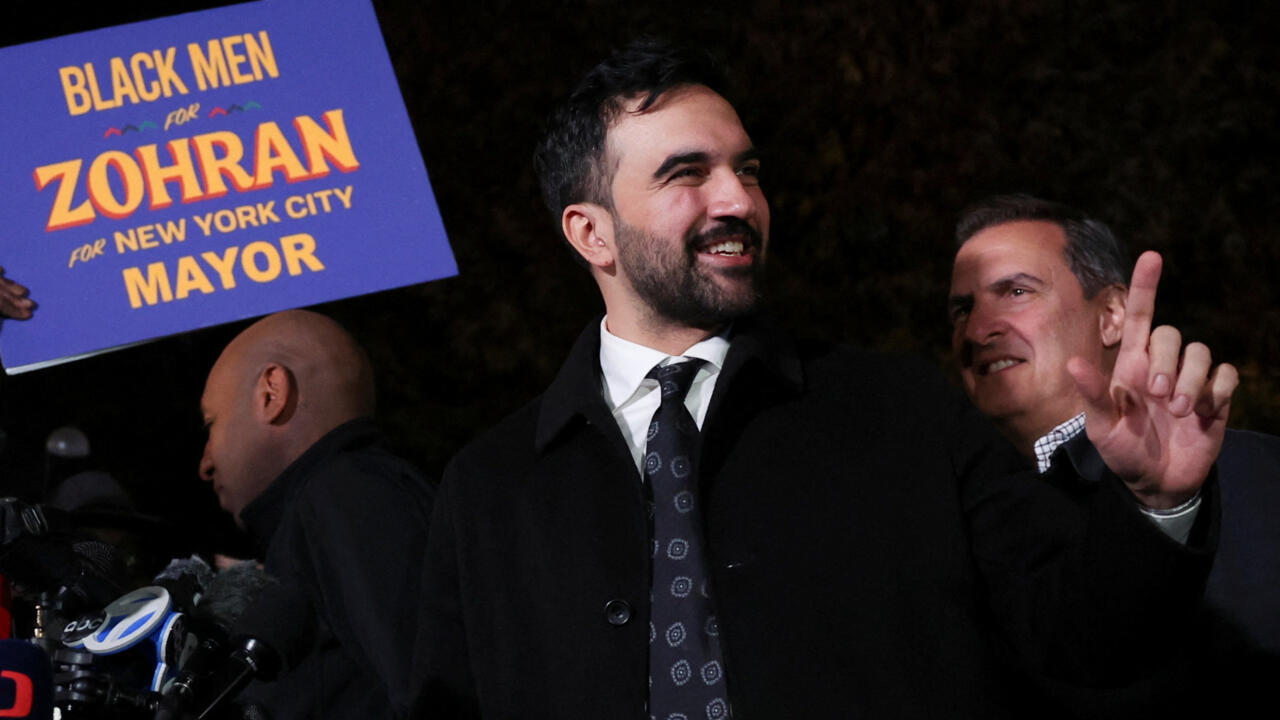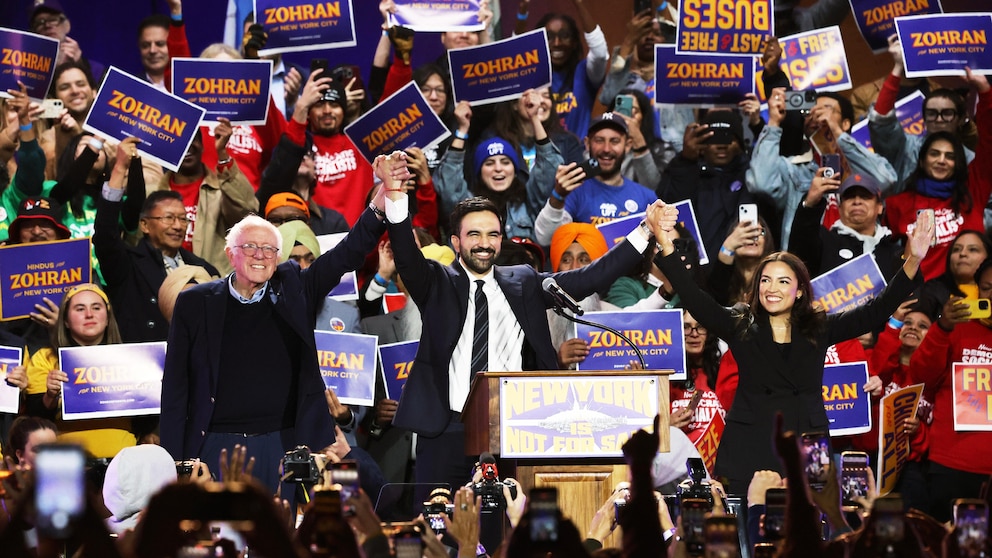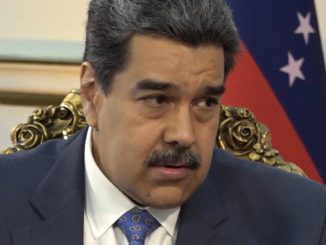
Newly elected New York City Mayor Zohran Mamdani delivers his victory speech, pledging a sweeping socialist agenda. (Screenshot: PBS News)
Published November 5, 2025
When the ballots were counted on November 4, 2025, New York City made history—electing Zohran Mamdani, a 34-year-old democratic socialist from Queens, as its next mayor.
To some, it was a victory for diversity and a fresh start for frustrated younger voters.
To others, it was a signal that the nation’s financial capital is stepping onto dangerous ground.
A Stunning Rise
Mamdani’s political story reads like a social-media-era success: the son of Ugandan-Indian immigrants, community organizer, and state assemblyman, propelled to power by a grassroots coalition of young voters, tenants’ unions, and progressive activists.
His victory makes him New York’s first Muslim mayor, the first of South-Asian descent, and the youngest to hold the office in more than a century.
He defeated two powerful rivals—former governor Andrew Cuomo, running as an independent, and Republican Curtis Sliwa—by capturing just over 50 percent of the vote.
Backed by left-wing groups such as the Democratic Socialists of America, Mamdani’s campaign promised sweeping reforms that he said would “make New York work for everyone, not just the wealthy.”
A Platform Built on Redistribution
Mamdani’s agenda reads like a wish list of modern socialist ideals:
-
Rent freezes and expanded protections for tenants;
-
Fare-free public buses and an overhaul of the city’s transit system;
-
Universal childcare funded by new taxes on top earners and corporations;
-
Publicly built affordable housing and stronger labor protections.
To his supporters, it’s a bold corrective to decades of inequality.
To his critics, it’s an economic gamble that could test the city’s limits on taxation, debt, and private-sector patience.
New York’s wealth has long depended on finance, real estate, and tourism—industries sensitive to tax policy and investor confidence. If the city becomes inhospitable to high earners and business owners, even a small migration of capital could have outsized effects on revenue and employment.
The Mood Behind the Movement
Mamdani tapped into a potent frustration: a sense that working-class New Yorkers are priced out of the city they built.
Skyrocketing rents, stagnant wages, and the lingering cost-of-living crisis created fertile ground for a candidate promising radical change.
His rallies blended activism with optimism, heavy on social-media energy and grassroots appeal.
Young voters turned out in high numbers, seeing Mamdani as a voice for a generation that feels left behind by establishment politics.
That same dynamic, however, worries moderates who remember New York’s turbulent past.
They recall the 1970s fiscal collapse—when unchecked spending and anti-business rhetoric nearly bankrupted the city.
Many fear history could repeat itself if ideological enthusiasm overrides fiscal restraint.
Governance Will Be the Real Test
Winning an election with idealism is one thing; governing a complex metropolis is another.
Mamdani will inherit a city still recovering from the pandemic, facing challenges in housing, policing, and public finance.
Implementing his ambitious programs will require cooperation from Governor Kathy Hochul and the state legislature—both of whom may resist a sweeping socialist overhaul.
Even within his own party, he faces skepticism.
Moderate Democrats worry that his rhetoric could alienate business partners, investors, and middle-class voters who already feel overtaxed.
If his administration moves too quickly toward redistribution, he risks triggering capital flight, declining tax revenues, and growing dissatisfaction from the city’s working professionals.
Crime, Order, and Quality of Life
Public safety remains another point of tension.
New York has clawed its way back from post-pandemic crime spikes, but residents still cite law enforcement and cleanliness as top concerns.
If Mamdani pursues progressive policing reforms—reducing budgets, re-imagining enforcement, or limiting arrests—critics predict a resurgence of disorder and street crime, the same conditions that eroded confidence in earlier left-leaning administrations.
Right-of-center observers warn that public perception is fragile: once New Yorkers no longer feel safe on subways or streets, no amount of social spending will restore confidence.
Symbolism Meets Reality
Globally, Mamdani’s victory resonates as a symbol of representation: a Muslim, immigrant-descended mayor leading one of the world’s most iconic cities.
But symbolism does not balance budgets.
He inherits a $110-billion economy that functions within a global capitalist framework.
How he reconciles that system with his socialist ideals will determine whether his administration becomes a model—or a warning—for other major cities.
The challenge is not just ideological; it’s practical.
The city’s debt obligations, pension commitments, and infrastructure costs leave little room for experimentation.
Even progressive economists admit that without steady private-sector growth, his social promises may prove impossible to sustain.
A Test Case for the Nation
Across the U.S., political strategists are watching New York closely.
For Democrats, Mamdani’s win could energize the progressive wing, proving that left-populist movements can triumph in major cities.
For Republicans and moderates, it could become a vivid example of socialism’s limits if economic or public-safety problems escalate.
In that sense, New York has again become America’s political laboratory: what happens there rarely stays there.
If Mamdani’s administration falters, it will embolden critics who argue that socialist policies—no matter how noble in intent—inevitably collide with fiscal and social reality.
A City at the Crossroads
Zohran Mamdani’s election is a milestone for identity politics and generational change, but it is also a test of governance, economics, and restraint.
New York stands at a crossroads between its entrepreneurial heritage and an uncertain experiment in redistribution.
Whether Mamdani manages to deliver genuine reform—or leads the city into a new era of overreach—will reveal whether the socialist promise can survive contact with the real world.


 Implications of Zohran Mamdani’s Victory:
Implications of Zohran Mamdani’s Victory:
1. New York’s Left Turn and Its Economic Risks
Mamdani’s win marks a hard left turn for the nation’s financial capital.
He campaigned on ideas that critics call “socialist experiments” — rent freezes, fare-free public transport, and higher taxes on top earners. To business owners, landlords, and investors, these are flashing red lights.
A city already struggling to recover from post-pandemic outmigration could see another wave of business flight and tax-base erosion if the wealthy and corporations decide to move operations elsewhere.
New York learned this lesson in the 1970s fiscal crisis — runaway spending and anti-business policies can hollow out a city faster than ideology can rebuild it.
2. Populism Over Pragmatism
Mamdani’s rhetoric energized young and far-left voters, but his promises may be financially unsustainable.
Free transit and universal childcare sound appealing, yet each requires billions in funding. Without a clear plan beyond “tax the rich,” the city risks budget gaps, downgraded credit ratings, or increased borrowing.
Analysts on the right see this as a victory of emotion over arithmetic — a campaign that told voters what they wanted to hear without confronting economic realities.
3. Law-and-Order and Urban Quality-of-Life Concerns
New York’s public safety has improved since the pandemic, but right-leaning observers worry a Mamdani administration may reverse that trend.
Progressive mayors often push for police budget cuts or “re-imagined” enforcement strategies, which critics say embolden crime and disorder.
If Mamdani weakens law enforcement or expands leniency policies, expect crime rates and public frustration to rise — and national media to take note.
4. State-City Clashes and Gridlock Ahead
Governor Kathy Hochul, a moderate Democrat, and the state legislature hold much of the financial leverage.
If Mamdani pursues an uncompromising socialist agenda, he’ll face resistance not only from Republicans but also from his own party.
The likely result: stalemate, delayed budgets, and endless blame games — with ordinary New Yorkers caught in the middle.
5. A National Symbol for the Left — and a Warning for Everyone Else
The mainstream left will celebrate Mamdani’s win as proof that “socialist ideas can win elections.”
But for right-leaning commentators, it’s a cautionary tale — showing how identity politics and class resentment can overpower sound governance.
If Mamdani’s policies backfire, expect his tenure to become a case study in why progressive economics fail in practice.
If the city declines, other municipalities might think twice before electing leaders who promise utopia without a fiscal map.
6. Cultural and Political Messaging Impact
Mamdani’s story — a young, Muslim, self-described democratic socialist — will be used by activists and universities as proof that America is ready for a new political model.
Right-leaning voices see this as part of a broader cultural shift: replacing merit-based governance with ideology-driven politics and symbolism.
In their view, New York’s choice reflects how social media activism and emotional politics are now shaping elections more than traditional leadership credentials or proven management skill.
7. The Broader U.S. Message
Across the country, conservatives may use New York’s direction as a contrast point — warning voters in swing states that “this is what happens when socialism runs a city.”
Should NYC’s finances worsen or crime rise, Mamdani could become the GOP’s new talking point: an emblem of the urban decay that follows when progressivism goes unchecked.
 Overall Takeaway:
Overall Takeaway:
Zohran Mamdani’s election is being hailed by progressives as a “historic breakthrough,” but for many New Yorkers—and Americans watching nationwide—it’s also a test of how far left a major U.S. city can lean before reality pushes back.
His rise captures the mood of a generation frustrated by high costs, housing shortages, and political gridlock. Yet leadership requires more than protest slogans; it demands fiscal responsibility, law-and-order, and the courage to balance compassion with competence.
If Mamdani’s socialist blueprint leads to rising taxes, business flight, or safety concerns, New York may again serve as a warning to the rest of America: that ideology cannot replace practicality, and that prosperity cannot survive under policies hostile to the very engines that create it.
New York has always been a city of ambition, enterprise, and hard work. Whether it remains that way—or drifts into another era of debt, decline, and dependency—will depend on whether Mayor Mamdani governs as a unifier or as an activist still campaigning for a revolution.
SOURCES: THE GATEWAY PUNDIT – Socialist Mayor-Elect Zohran Mamdani Declares War on President Trump, Capitalism, and Traditional America in Radical New York City Victory Speech
THE SYDNEY MORNING HERALD – Zohran Mamdani’s four words for Trump after historic win in New York mayoral election





Be the first to comment